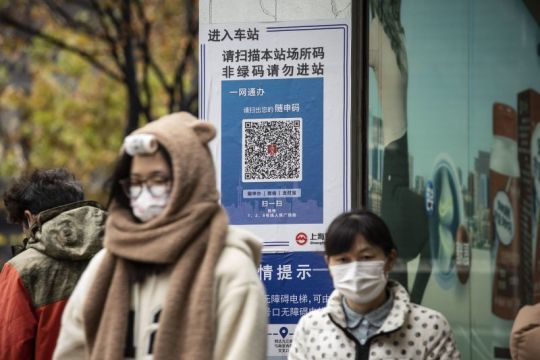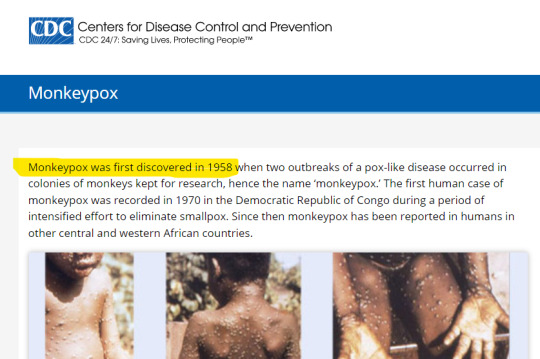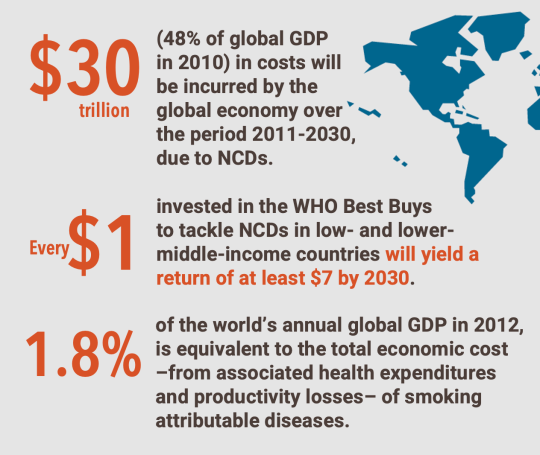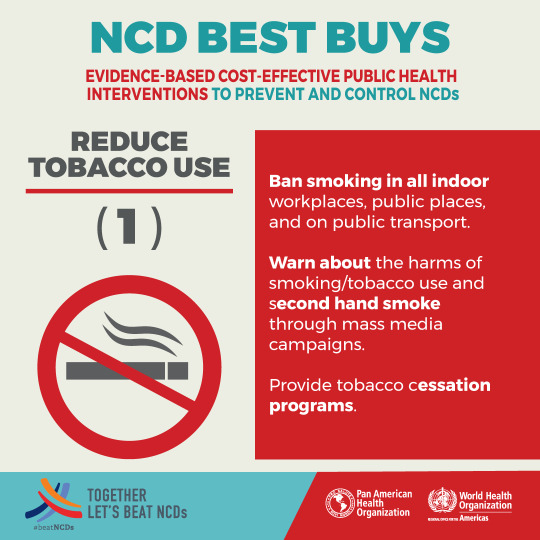#communicable disease control
Link
#brand safety-nsf death#brand safety-nsf health issues#brand safety-nsf sensitive#centers for disease control and prevention#communicable disease control
9 notes
·
View notes
Link
Exactly like a flu shot. Big Deal.
And if the mutations and variants keep getting less dangerous, we’ll be in good shape.
11 notes
·
View notes
Link
PROTECT THE RIGHTS OF THE VACCINATED! . IF THOSE IGNORANT ENOUGH TO BE ANTIVAXX! LET THEM GO TO THOSE WHO ‘TURNED” THEM FOR TREATMENT!. NO HOSPITAL ENTRY WITHOUT COVID VACCINE HISTORY!
#communicable disease control#continents and regions#coronavirus#diseases and disorders#health and medical
4 notes
·
View notes
Text
0 notes
Text
India: The fatal mauling of 4-year-old forces to grapple with stray dog problem
New Post has been published on https://petn.ws/nuixT
India: The fatal mauling of 4-year-old forces to grapple with stray dog problem

New Delhi CNN — For nearly a minute, the 4-year-old boy attempts to valiantly escape the hungry pack of stray dogs as they circle around him. He tries to run, but one of the animals pulls the boy to the ground. Two more dogs close in, offering the victim little respite. The boy, who has […]
See full article at https://petn.ws/nuixT
#DogNews #Accidents, #AnimalControl, #Animals, #AnimalsAndSociety, #Asia, #BrandSafetyNsfDeath, #BrandSafetyNsfHealthIssues, #BrandSafetyNsfSensitive, #CommunicableDiseaseControl, #ContinentsAndRegions, #DeathAndDying, #DeathsAndFatalities, #DisastersAndSafety, #DiseasesAndDisorders, #Dogs, #DomesticAlerts, #DomesticHealthAndScience, #DomesticInternationalNews, #HealthAndMedical, #Hyderabad, #IabBereavement, #IabDiseasesAndConditions, #IabDogs, #IabFamilyAndRelationships, #IabInfectiousDiseases, #IabMedicalHealth, #IabPets, #IabVaccines, #India, #InfectiousDiseases, #InternationalAlerts, #InternationalHealthAndScience, #LifeForms, #Mammals, #PublicHealth, #Rabies, #SafetyIssuesAndPractices, #Society, #SouthAsia, #VaccinationAndImmunization
#accidents#Animal Control#animals#animals and society#asia#brand safety-nsf death#brand safety-nsf health issues#brand safety-nsf sensitive#communicable disease control#continents and regions#death and dying#deaths and fatalities#disasters and safety#diseases and disorders#dogs#domestic alerts#domestic-health and science#domestic-international news#health and medical#hyderabad#iab-bereavement#iab-diseases and conditions#iab-dogs#iab-family and relationships#iab-infectious diseases#iab-medical health#iab-pets#iab-vaccines#india#Infectious diseases
0 notes
Text
FDA advisers narrowly vote in favor of Pfizer's RSV vaccine for older adults, despite possible safety concerns | CNN
CNN
—
Vaccine advisers to the US Food and Drug Administration narrowly voted Tuesday in favor of Pfizer’s RSV vaccine for adults over the age of 60, paving the way for approval of the first nation’s RSV vaccine, despite some safety concerns.
The committee members voted 7-4, with one abstention, that there is adequate data to support the safety and effectiveness of Pfizer’s vaccine for the…
View On WordPress
#brand safety-nsf health issues#brand safety-nsf sensitive#communicable disease control#companies#diseases and disorders#domestic alerts#domestic-health and science#government organizations - us#health and medical#iab-diseases and conditions#iab-lung and respiratory health#iab-medical health#iab-vaccines#international alerts#international-health and science#Pfizer Inc.#public health#respiratory diseases#us department of health and human services#us federal departments and agencies#us food and drug administration#vaccination and immunization
0 notes
Text
Australia to overturn Djokovic visa ban, paving way for Australian Open return | CNN
Australia to overturn Djokovic visa ban, paving way for Australian Open return | CNN
Sydney
CNN
—
Australia will overturn a three-year ban on tennis player Novak Djokovic entering the country, paving the way for the former world No. 1 to contest the 2023 Australian Open.
Djokovic confirmed the news in his press conference Wednesday after defeating Andrey Rublev at the ATP Finals in Turin, Italy, adding that he will compete in the 2023 Australian Open next January.
“I was…

View On WordPress
#australia#australian open#citizenship and displacement#communicable disease control#continents and regions#coronavirus#diseases and disorders#grand slam tournaments#health and medical#immigration#infectious diseases#international relations and national security#life forms#microscopic life#novak djokovic#oceania#professional tennis#public health#respiratory diseases#sports and recreation#sports events#sports figures#tennis#tennis events#vaccination and immunization#viruses
0 notes
Text
As China moves away from zero-Covid, health experts warn of dark days ahead | CNN
As China moves away from zero-Covid, health experts warn of dark days ahead | CNN
Editor’s Note: Editor’s Note: A version of this story appeared in CNN’s Meanwhile in China newsletter, a three-times-a-week update exploring what you need to know about the country’s rise and how it impacts the world. Sign up here.
Hong Kong
CNN
—
China’s zero-Covid policy, which stalled the world’s second-largest economy and sparked a wave of unprecedented protests, is now being dismantled…

View On WordPress
#asia#brand safety-nsf death#brand safety-nsf health issues#brand safety-nsf sensitive#business#business and industry sectors#china#communicable disease control#continents and regions#coronavirus#demographic groups#diseases and disorders#domestic alerts#domestic-coronavirus#domestic-health and science#domestic-international news#east asia#economy and trade#epidemics and outbreaks#government and public administration#government bodies and offices#government departments and authorities#health and medical#health care#health departments#iab-business and finance#iab-diseases and conditions#iab-healthcare industry#iab-industries#iab-infectious diseases
1 note
·
View note
Link
Joseph Singiringabo lo ha perdido casi todo y a todos sus seres queridos a causa del ébola. En unas pocas semanas, el hombre de 78 años perdió a su esposa, su hijo y una nieta recién nacida a causa de la enfermedad.
Él se queda al cuidado de tres nietos menores de 13 años después de que su madre huyó del pueblo para escapar del peligro del ébola. Su ganado fue robado mientras estaba fuera en la cuarentena requerida de 21 días, dejándolo en la indigencia y la desesperación.
Las autoridades han lanzado un rastreo de contactos agresivo para localizar a familiares y amigos que manipularon los cuerpos de las primeras víctimas o asistieron a los funerales.
Algunos escaparon de las instalaciones de cuarentena, otros viajaron hasta la capital, Kampala, y algunos visitaron a curanderos tradicionales y hechiceros para recibir tratamiento.
“Algunos de los pacientes aún se esconden y no saben que tienen ébola, por lo que están en la comunidad”, dijo a CNN el médico de salud pública Dr. Jackson Amone.
Actualmente hay dos vacunas contra el ébola autorizadas, según la Organización Mundial de la Salud , pero fueron desarrolladas para ser seguras y protectoras contra la cepa Zaire del virus del ébola.
A diferencia del ébolavirus Zaire anterior, la cepa de Sudán que circula actualmente en Uganda no tiene un tratamiento efectivo conocido ni una vacuna aprobada. Sin embargo, el país está a punto de lanzar tres vacunas de prueba que han sido certificadas como seguras por el grupo de trabajo de la Organización Mundial de la Salud (OMS).
0 notes
Link
HOW MANY AMERICAN IDIOTS AROUND TO COMMIT SUICIDE BY COVID AND RISK THE REST OF AMERICA?
#communicable disease control#coronavirus#diseases and disorders#epidemics and outbreaks#health and medical
0 notes
Link
#business and industry sectors#business#economy and trade#communicable disease control#continents and regions
0 notes
Text
I stay awake at night bc I don't even know that my favorite color is and I'm afraid that I don't have a real personality
#paranoid personality disorder#who am i#am i real#am i normal#thoughts#communicable disease control#overthinking#mentally ill#im not mentally stable#am i okay#anxitey#am i crazy#mood disorder#social anxiety#mental disorder#midnight
1 note
·
View note
Text
Hong Kong scraps some restrictions for travelers, ends contact tracing | CNN Business
Hong Kong scraps some restrictions for travelers, ends contact tracing | CNN Business
Hong Kong
CNN
—
Hong Kong on Tuesday announced it would scrap some remaining restrictions on travelers and end contact tracing, after Beijing shifted away from its hardline zero-Covid stance.
The city’s health secretary is due to formally announce the removal of curbs on international visitors and the end of requirements to scan a government health app to enter public venues, the city’s…
View On WordPress
#asia#brand safety-nsf health issues#brand safety-nsf sensitive#China#communicable disease control#continents and regions#domestic alerts#domestic-health and science#domestic-international news#east asia#health and medical#Hong Kong#iab-medical health#iab-travel#international alerts#international-health and science#public health#travel and tourism
0 notes
Text
Monkeypox
Monkeypox has been around since 1958!
Now that COVID is winding down, mainstream media needs another disease to keep people glued to the news.
Weird how when pandemic restrictions are being lifted, monkeypox suddenly appears.
I wonder how many people will overlook this obvious coincidence?

#monkeypox#government lockdowns#mainstream media#communicable disease control#centers for disease control and prevention#COVID virus#covid
0 notes
Text
Cracking the Code on NCDs: The Common Killer Explained

Non-communicable diseases (NCDs) are often referred to as the silent or quiet threat, as they do not always have immediate and obvious symptoms. However, these diseases are responsible for a large number of deaths worldwide, making them a common killer. In this blog post, we will delve into the world of NCDs and provide tips on how to avoid falling victim to these deadly illnesses. By cracking the code on NCDs, we can better understand and prevent this common killer from taking more lives.
Understanding Noncommunicable Diseases (NCDs): A Primer
Non-communicable Diseases (NCDs) are a growing concern in the world of healthcare. Unlike infectious diseases, NCDs are chronic and long-lasting, with no easy cure. These diseases, which include conditions like heart disease, diabetes, and cancer, are often caused by lifestyle factors such as smoking, poor diet, and lack of physical activity.
Understanding NCDs is essential in order to tackle this silent threat effectively. By learning about the risk factors and prevalence of these diseases, we can take steps towards prevention and control. Furthermore, understanding the impact of NCDs on global health allows us to advocate for policy changes and implement strategies to combat this common killer.
In the next sections, we will delve deeper into the world of NCDs, uncovering the hidden epidemic, identifying key risk factors, and exploring crucial steps towards prevention. Together, we can crack the code on NCDs and work towards a healthier future.

The Hidden Epidemic: Exploring the Quiet Threat of NCDs
Non-communicable diseases (NCDs) pose a hidden epidemic, silently taking lives across the globe. The danger lies in their deceptive nature, as they often don't display immediate symptoms, leading many to overlook their severity. This silent threat encompasses a range of chronic diseases such as heart disease, diabetes, and cancer, which are responsible for a significant number of deaths worldwide.
NCDs are fuelled by unhealthy lifestyle choices such as smoking, poor diet, and lack of physical activity. These risk factors, combined with a lack of awareness and early detection, make NCDs a major health concern. Understanding the hidden epidemic of NCDs is crucial in order to effectively combat them and prevent further damage.
In the following sections, we will dive deeper into the impact of NCDs, explore key risk factors, and discuss vital steps towards prevention and control. By shedding light on this quiet threat, we can work towards a healthier future for all.
Identifying Key Risk Factors and Prevalence

To effectively combat non-communicable diseases (NCDs), it is crucial to identify the key risk factors and understand their prevalence. These risk factors include smoking, poor diet, lack of physical activity, excessive alcohol consumption, and obesity. By examining the prevalence of these risk factors, we can better understand the extent of the problem and tailor prevention strategies accordingly.
Unfortunately, the prevalence of NCD risk factors is alarmingly high worldwide. For example, smoking remains a major risk factor for NCDs, with approximately 7 million deaths attributed to tobacco use each year. Additionally, unhealthy diets high in processed foods and sugar contribute to the rise in NCDs, especially in urban areas.
By identifying and addressing these key risk factors, we can take significant steps towards reducing the burden of NCDs and promoting a healthier society for all.
Unravelling the Impact of NCDs on Global Health
Non-communicable diseases (NCDs) have a profound impact on global health, affecting individuals, families, and entire communities. These diseases, including heart disease, diabetes, and cancer, are responsible for a significant number of deaths worldwide. The impact of NCDs goes beyond the physical toll, affecting mental and emotional well-being, and placing a burden on healthcare systems.
NCDs not only affect individuals but also have wider societal and economic consequences. The cost of treating NCDs is high, placing a strain on healthcare resources and limiting funding for other crucial areas. Furthermore, NCDs can hinder economic development by reducing productivity and increasing healthcare costs.
By unravelling the impact of NCDs on global health, we can advocate for increased awareness, policy changes, and resource allocation to effectively combat this common killer. Together, we can work towards a healthier future and reduce the burden of NCDs on individuals and communities worldwide.
Promoting Awareness and Early Detection
Promoting awareness and early detection is crucial in the fight against non-communicable diseases (NCDs). By educating individuals and communities about the risks and symptoms associated with NCDs, we can empower them to take proactive steps towards prevention and control. Simple actions such as regular health check-ups, self-examinations, and screenings can make a significant difference in early detection, leading to timely treatment and improved outcomes.
Additionally, raising awareness about the importance of adopting a healthy lifestyle, including regular exercise, a balanced diet, and tobacco cessation, can help reduce the risk of developing NCDs. It is essential to utilise various communication channels, such as social media, community outreach programmes, and healthcare campaigns, to reach a wide audience and promote the message of early detection and prevention. Together, we can empower individuals to take charge of their health and create a society that prioritises well-being
Crucial Steps Towards Prevention and Control
Now that we have a better understanding of non-communicable diseases (NCDs) and their impact, it's time to explore crucial steps towards prevention and control. Prevention is always better than cure, and when it comes to NCDs, it couldn't be more true. Here are some key steps you can take to protect yourself and your loved ones from falling victim to these silent killers.
Firstly, adopt a healthy lifestyle. This means incorporating regular exercise into your routine, maintaining a balanced diet rich in fruits and vegetables, and avoiding harmful habits like smoking and excessive alcohol consumption. By making these simple changes, you can significantly reduce your risk of developing NCDs.
Secondly, prioritise regular health check-ups and screenings. Early detection is key to successful treatment, so make sure to visit your healthcare provider regularly for routine check-ups and screenings. This can help detect any potential health issues early on and allow for timely intervention.
Lastly, raise awareness and educate others. Share your knowledge about NCDs with your friends, family, and community. By spreading awareness, you can help others make informed decisions about their health and take proactive steps towards prevention.
By following these crucial steps, we can take control of our health and work towards a future where NCDs are no longer a common killer. Remember, small changes can make a big difference. Start today and protect yourself and your loved ones from the silent threat of NCDs
The Way Forward: Policy Implications and Strategies for Combating NCDs
Moving forwards, addressing the challenge of non-communicable diseases (NCDs) requires a comprehensive approach involving policy implications and strategies for prevention and control. Firstly, governments need to prioritise NCDs on their agendas and allocate resources towards prevention, early detection, and treatment. This includes implementing policies to reduce tobacco and alcohol consumption, promoting healthier diets and physical activity, and ensuring access to affordable healthcare.
In addition, collaborations between governments, healthcare professionals, and community organisations are crucial. This involves establishing public health campaigns to raise awareness about NCDs, creating supportive environments for healthy behaviours, and providing education and resources to individuals and communities.
Furthermore, fostering partnerships with the private sector and engaging industries in creating healthier products and environments can also contribute to combating NCDs. By implementing these policy implications and strategies, we can work towards a future where NCDs no longer claim countless lives and where everyone has the opportunity to live a healthier and happier life.
#diabetes#cancer#cardiovascular disease#heart disease#chronic obstructed pulmonary disease#lung disease#ncds#noncommunicable diseases#tobacco control#physical activity#healthy diets#alcohol#world health organization#uniatf#united nations#non communicable diseases#hangoutsonair#hangouts on air#hoa#non-communicable disease (disease or medical condition)#global health#public health (medical specialty)
0 notes
Text
Two Proven Tips to Avoid Diseases and Get Healthier
Discover two effective tips to prevent diseases and improve your overall health. Learn proven strategies that will help you stay healthy and live a better life.
#Tips to Avoid Diseases#5 ways to prevent the spread of disease#how to prevent diseases essay#prevention and control of diseases#15 ways to prevent communicable diseases#ways of preventing diseases in our environment#how to prevent lifestyle diseases essay#how to prevent communicable diseases essay
0 notes